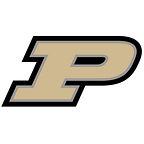Suggested reads: Space and flight
Purdue is often called the “Cradle of Astronauts” for a good reason: The university has graduated 27 U.S. astronauts, including Neil Armstrong, the first person to step on the Moon’s surface. Nearly one-third of all U.S. spaceflights have included a Purdue graduate, and 11 missions have included multiple Purdue alumni. Li Qiao is a professor and associate head for engagement and recognition in the School of Aeronautics and Astronautics in Purdue’s College of Engineering, where her Propulsion and Energy Lab investigates the basic science of fuels, propulsion and sustainable energy, as well as develops new technologies. She and her colleagues — avid readers all — put together a list of books they think anyone fascinated by space and flight might enjoy.
Chasing New Horizons: Inside the Epic First Mission to Pluto, by Alan Stern, principal investigator of NASA’s New Horizons spacecraft (which had the historic encounter with a Kuiper Belt Object — an object beyond Pluto — on January 1, 2019) and David Grinspoon
Well-written and, just like Dr. Stern, pretty direct sometimes, this book is about the historic Pluto mission time frame. Chapters 2–5 should be required reading for any student wanting to work with NASA.
Rocket Men: The Daring Odyssey of Apollo 8 and the Astronauts Who Made Man’s First Journey to the Moon, by Robert Kurson (not to be confused with Rocket Men: The Epic Story of the First Men on the Moon by Craig Nelson)
Kurson’s book is the story of the audacious Apollo 8 mission. Both parts of the story — mission planning and the mission itself — are captivating reads and hard to put down once you start. The Cold War motivations that were driving the Apollo program are described well. The accounts of these motivating factors may seem almost fictional to today’s students but align well with my memories of the era.
The Right Stuff, by Tom Wolfe
Wolfe was the premier American author writing critically about American culture from the 1960s until his passing in 2018. Yet The Right Stuff is not a critical treatise but a respectful and wonderfully told story. It begins with ace pilot Chuck Yeager’s first supersonic flight — part of a global cultural transition at the start of the space race as the supersonic jet test pilots (such as Purdue’s Iven Kincheloe) are being replaced on the throne of cultural adoration by the seven Mercury astronauts (including Purdue’s Gus Grissom).
The author is not writing about technology; he is writing about people and their culture, as new technology and achievement propel them into a remarkable chain of events in world history. Wolfe writes of the astronauts as humans, of the seven astronauts as a team, of their families, and of their interactions with world media and American political leaders. Without reading the book, you will waste your time watching the movie. If you read the book first, you will enjoy the movie tremendously.
The Sirens of Mars: Searching for Life on Another World, by Sarah Stewart Johnson
The book is part history of the search for life on Mars and part memoir of the author’s career as a planetary scientist who became involved with some of the most famous Mars missions of the last few decades. Her prose is riveting. Even though I am familiar with many of the key discoveries about the Red Planet throughout history, she has a way with storytelling that conveys both the excitement and the occasional pangs of disappointment as if I were experiencing them for the first time.
First Man: The Life of Neil A. Armstrong, by James R. Hansen
The definitive, authorized biography of Neil Armstrong, and a terrific profile of this amazing Boilermaker and American icon.
The Space Barons: Elon Musk, Jeff Bezos, and the Quest to Colonize the Cosmos, by Christian Davenport
The private sector has given a supporting jolt to NASA’s efforts to explore space these past few years. This book tells the tale of the uber-wealthy entrepreneurs — like Elon Musk, Jeff Bezos, Richard Branson and Paul Allen — whose fortunes have provided a much-welcome “booster stage” for sending regular folks as well as astronauts into space.
Li Qiao, PhD
Professor and Associate Head for Engagement and Recognition, School of Aeronautics and Astronautics
Professor of Mechanical Engineering (by courtesy)
College of Engineering
Purdue University
